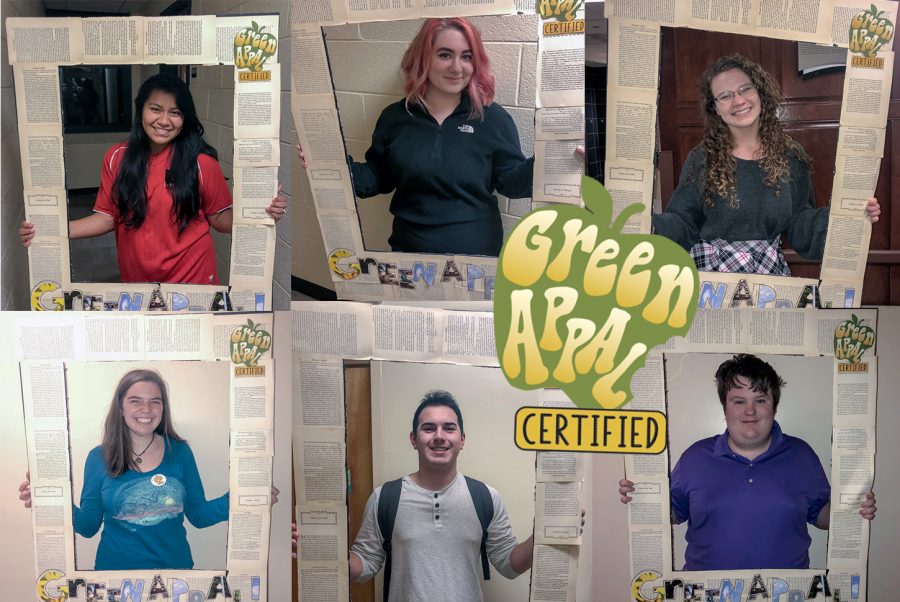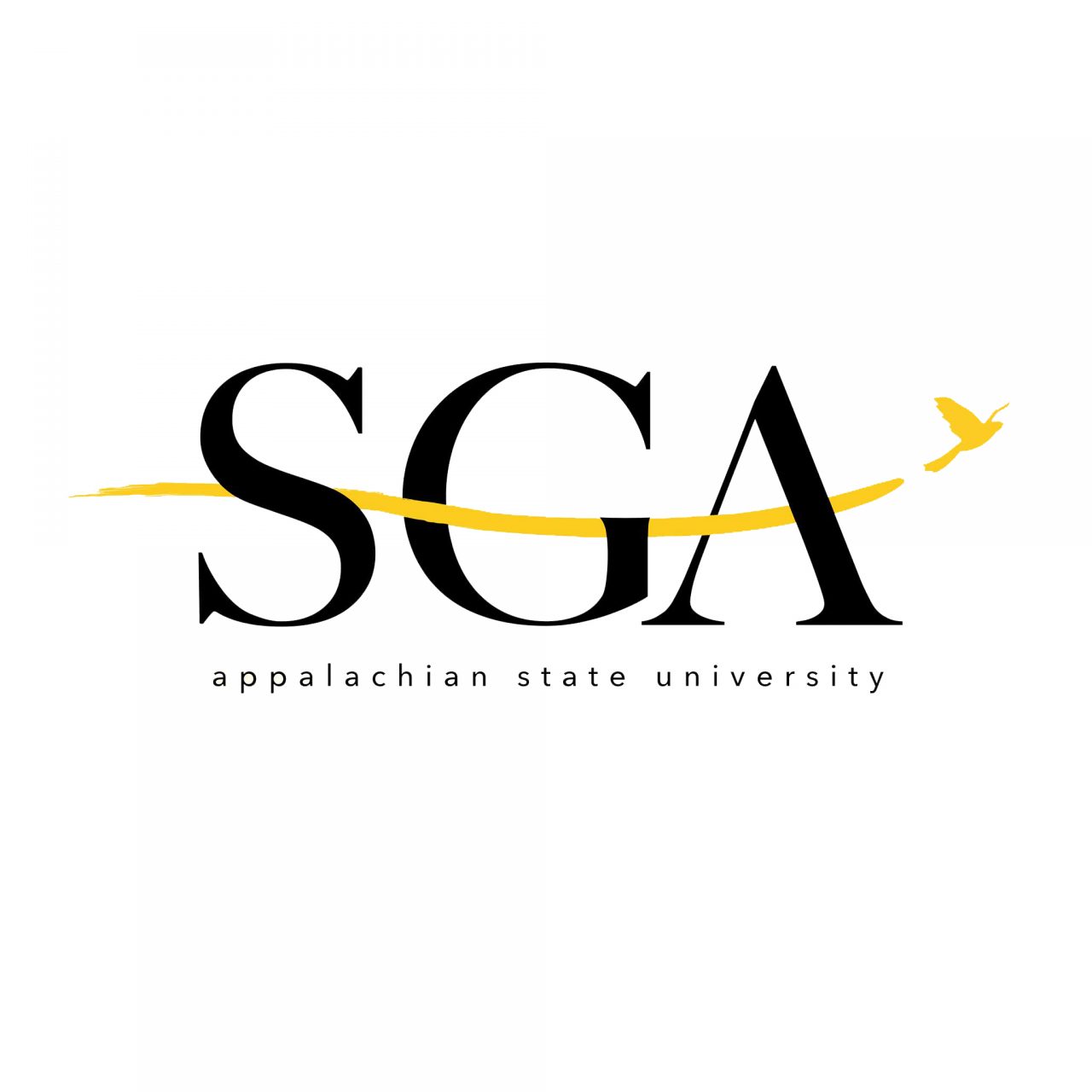Green Appal certification demonstrates students’ individual sustainability efforts
Courtesy of App State Office of Sustainability
Students celebrate being “Green Appal certified.” The program helps students living on campus to be more sustainable.
October 24, 2020
The Office of Sustainability is moving forward with another year of Green Appal certifications, a program for on-campus students who want to monitor their individual impact on the environment.
“A lot of time students feel like they’re kind of powerless on campus when it comes to sustainability stuff,” said Rebecca Walton, outreach coordinator for the Office of Sustainability. “What’s really cool about Green Appal is that they can have a direct impact through how they live on campus.”
Students can participate in the program by filling out a form that evaluates their habits relating to things such as well-being, food choices, energy usage, transportation methods and involvement on campus.
The form’s purpose is to show students their impact right now and give them ideas to do better.
Walton said this often exposes students to sustainable opportunities they weren’t aware existed, like watching what foods they eat. She emphasized it isn’t just a questionnaire, it’s a way to start conversations.
Walton said students ask about big-picture initiatives, but don’t realize how much they can do at an individual level. She said that many small actions can make a big impact.
In an effort to promote more sustainable efforts within residence halls, each hall council elects an “eco rep” to serve on their hall council.
“They become kind of the expert in their dorm on (sustainability) so that they can run events and programming that teaches other students in their residence halls about sustainability on campus,” said Sophia Kirn, eco-liaison for the Residence Hall Association.
Chloe Strong, the eco-rep for Lovill Residence Hall, said her position means a lot to her. She sees it as an opportunity to teach others about sustainable efforts.
“This program is a way for me to educate others on what is going on in the world and how to personally help out the world,” Strong said. “It’s necessary to teach the people around you.”
Kirn, a sustainability ambassador, said she can view student responses on the form which allows her to reach out to certain eco-reps based on their dorm’s needs. In doing so, the office can help residence halls tackle specific issues by recommending programs to that dorm’s eco-rep.
“Students are not powerless in terms of sustainability on campus because we all have an impact when we come here,” Walton said.
Considering COVID-19 related risks, App State is not allowing in-person programming within the residence halls this semester, Walton said.
To fill the gap, the office is considering emailing Green Appal-certified students weekly sustainability tips.
Walton said the office will have specific forms for the different residence halls in the future. Each residence hall poses different ways that students can be more sustainable, given that things like air conditioning vary dorm to dorm.
In the 2019-20 academic year, the Office of Sustainability awarded 373 Green Appal certifications to students. In the fall 2018 semester, nearly 100 rooms were certified, according to the university sustainability website.
This semester, the office plans on emailing Green Appal certificates to students and will hold a virtual party, instead of the usual in-person pizza party, for the floor with the most certified residents.
Kirn said one of the biggest ways students can be more sustainable is a plant-forward diet: a form of cooking and eating that doesn’t completely cut meat out, but highlights plant-based foods in each meal.
Both Kirn and Walton mentioned that this diet, and many other sustainable initiatives, are attainable while living on campus. Examples include Terra Verde in Rivers Street Cafe, which is completely vegan.
As far as “easy” fixes go, Kirn said students could unplug things when they aren’t in use, turn off lights when leaving their rooms, monitor water usage and wait to do laundry until they have a full load.
“One of the biggest things that we try to get across to students, faculty and staff is that everyone can be more efficient in terms of their resource use. Everybody,” Walton said. “You can take that action right now.”















shaymus • Oct 26, 2020 at 5:43 am
None of this is going to matter soon. If you haven’t looked at the moon lately, you haven’t noticed it turning 180° in the night sky every night for the past ten years. Don’t believe me, go out and look at the moon around when it sets. It will be upside down. The way to tell if Tycho crater will be at the 1 o’clock position. Now the big kicker is, go out on the parkway after sunset at from city lights. Look north-north east, also to your west. You will see massive dark voids blocking the stars. If you sit there long enough and focus, you will see the circumference. Might want to take some toilet paper with you cause you’re not going to believe what you see.